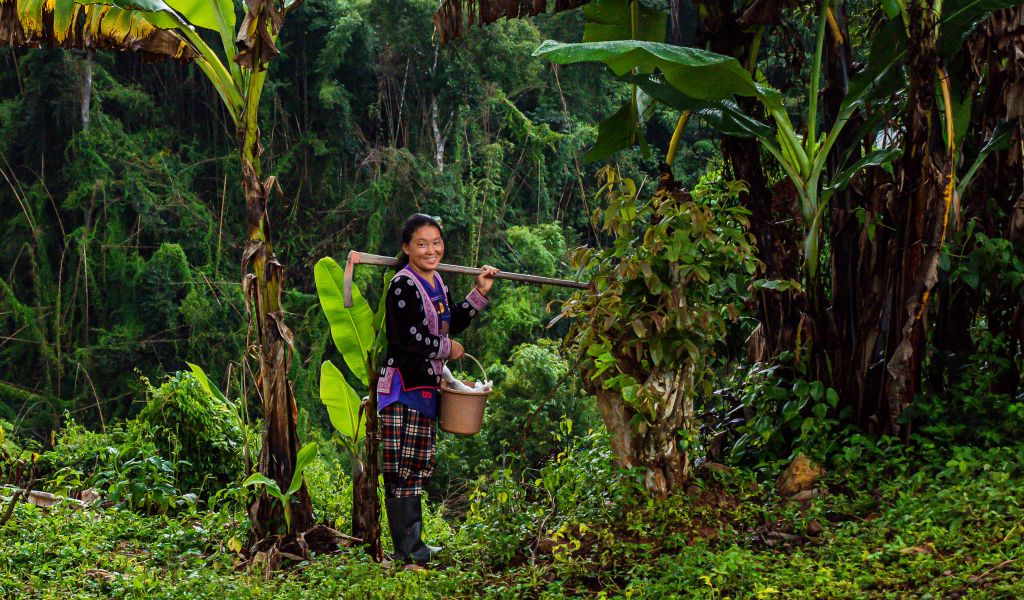Boon or bane: COP28 for people and forests

The developments and challenges posed at the 28th annual Conference of the Parties (COP28) to the United Nations Framework Convention on Climate Change evoke the words of F. Scott Fitzgerald on being "able to see that things are hopeless yet determined to make them otherwise."
On one hand, we have the promising news that China is on track to reach peak emissions by 2024. Yet, within days, we hear about the construction of new coal-fired plants. COP28 has been celebrated as a historic victory for the planet, while simultaneously criticized for failing to significantly alter the trajectory of climate change. From the perspective of people and forests, COP28 embodies these contrasting aspects.
COP28 has delivered several achievements that benefit us all. The operationalization of the Loss and Damage Fund, along with committed funds, was an unprecedented early victory.
Commitments to triple renewable energy sources will stimulate economic growth and support the long-awaited consensus to transition away from fossil fuels.
The inclusion of health as a standalone topic for the first time was significant, as was the increased focus on food systems.

The voices of Indigenous Peoples and local communities echoed throughout the corridors in Dubai, in opening sessions, numerous panels and side events. A report released ahead of COP28 tracks forest-related financing and the proportion allocated to Indigenous Peoples and local communities as traditional forest stewards. Although the proportions are still woefully inadequate (at 2.1%), they have more than doubled compared to the 2021 analysis of 0.7%.
However, the negotiations that held the most promise for forests and local communities in the Asia-Pacific region—those around Article 6 and the trading of carbon credits—ended in disappointment. This outcome underscores the complex interplay of economic interests and environmental stewardship, a tension that was palpable throughout the conference.
The reluctance of certain parties to support and advance a less prescriptive form of a UN market mechanism for the trade of credits was criticized by industry bodies such as the International Emissions Trading Association in their recent statement on the failed Article 6 discussions. They argue that the negotiations became politicized and in the end reflected anti-market sentiments.
Article 6.2, which deals with bilateral and multilateral trading of carbon credits between countries, will continue through the piloting of these bilateral arrangements. However, this piloting which may include Reducing Emissions from Deforestation and Forest Degradation (REDD+) will proceed without the added security that would have been provided had Article 6.4 on a carbon trading mechanism under the mandate of the UN been finalized and agreed upon.
Given the failure to establish a global UN market mechanism at the COP, we may see a growing shift towards regional initiatives, such as momentum around an ASEAN carbon market.
The marginal progress and associated disappointments related to carbon trading in the formal negotiations have been overshadowed or perhaps contributed to some significant parallel developments in the Voluntary Carbon Market (VCM) space. Singapore's announcement, along with Verra and the Gold Standard, of an upcoming joint playbook for incorporating credits under the Paris Agreement, is further evidence of moves towards harmonization and consolidation by the standards and other voluntary carbon market ecosystem actors.
This is significant because the projections of how the world collectively will meet its climate pledges (or Nationally Determined Contributions) are based on two key scenarios: one that is conditional and based on external financing and one that is unconditional (and less ambitious) without external financing. 80% of countries' more ambitious, conditional pledges rely at least in part on market-based approaches such as carbon markets.
While the debate and rebuttals around the validity of voluntary carbon credits continue to rage, the reality is that the most hopeful scenarios for keeping the world below two degrees, let alone 1.5 degrees, fundamentally depend on market-based approaches.
As the world reckons with the stark realities of the Intergovernmental Panel on Climate Change's latest report, it's clear that a future based on fossil fuels is untenable. Yet, the path forward remains shrouded in uncertainty, with the specific steps and measures to achieve this transition still in flux.
The Global Stocktake decision is not enforceable and does not guarantee a specific trajectory. However, it has laid the groundwork for a future that moves towards renewables, benefits Indigenous Peoples and local communities directly from the protection and expansion of forest landscapes, sees the biodiversity and climate crises as interconnected and relies on countries and critical climate leadership to deliver on their pledges.
COP28 has laid the groundwork, albeit imperfect, for a sustainable future. Now, the onus is on us—governments, the private sector and individuals—to breathe life into this blueprint. We must hold each other accountable, not just for the sake of our planet, but for the generations yet to come. The hope COP28 offers is not just in its outcomes, but in the collective action it inspires.
###
Regan Pairojmahakij is senior program officer for landscape collaboration in a changing climate and David Ganz is executive director at RECOFTC.

